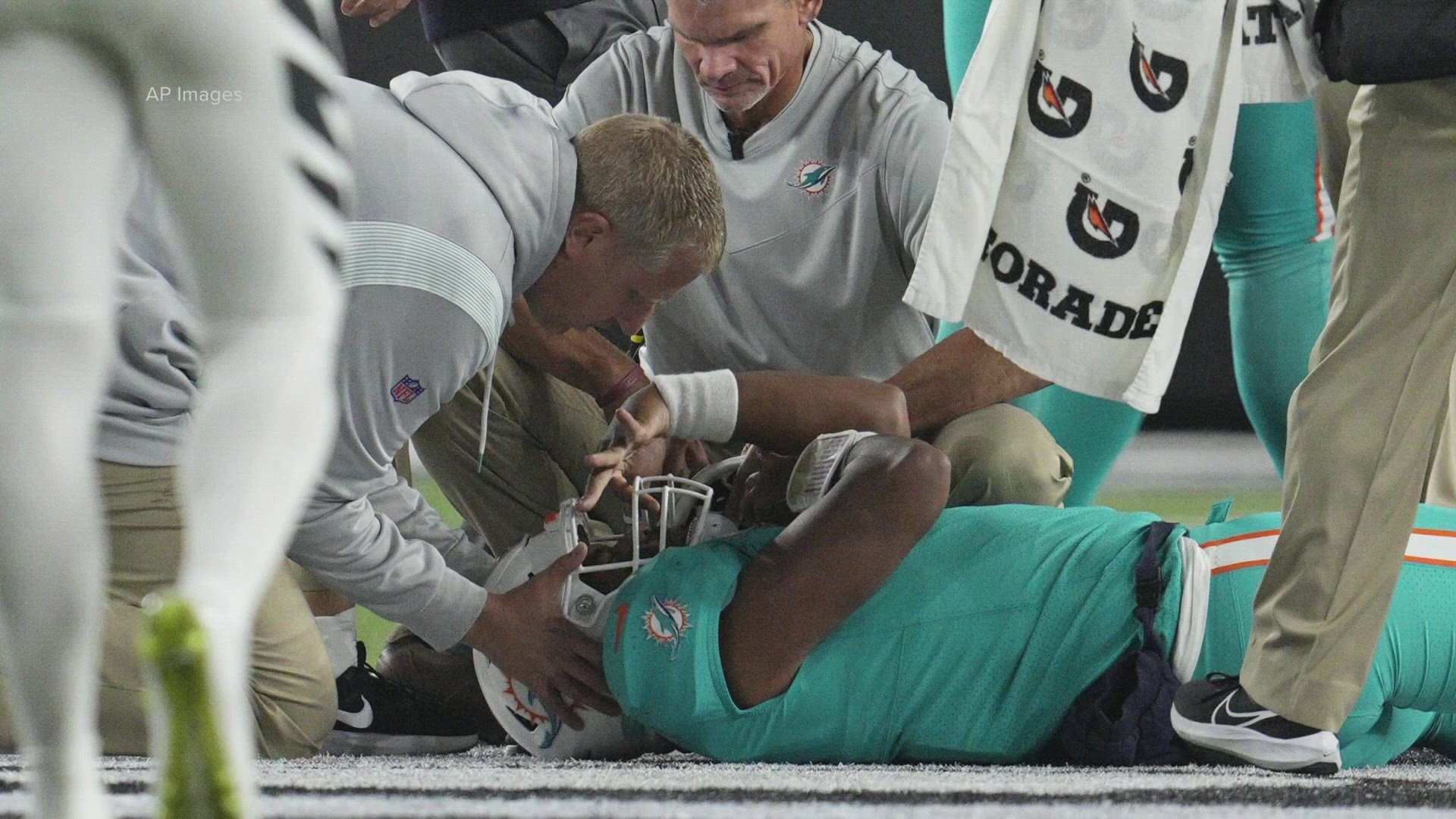SEATTLE — A series of head injuries culminated with a shot to the head in Week 4, and Dolphins quarterback Tua Tagovailoa became the poster player for a troubling trend.
Concussions rose 18% during the 2022 season, while the NFL and NFLPA ruled the concussion protocols were insufficient after doctors mishandled the case of Tagovailoa.
It was a conversation that dominated much of the season.
In Seattle, that conversation is happening at the youth level and has led to a study at UW Medicine and Seattle Children's Hospital.
"There were many, many unanswered questions—questions that people really needed to have answered to be able to take better care of these individuals," said Dr. Fred Rivara, who's one of three principal investigators in the study.
The study is looking at 350 kids in the Pacific Northwest (over 1,000 nationally) between the ages of 11 and 17. The goal is to predict which kids are more likely to develop persistent symptoms after a concussion and which are most at risk for future concussions.
It's a five-year, $10 million study financed by the National Institutes of Health.
"That's the largest study that they've ever funded on concussions," Rivara said.
It's a massive investment that local parents say is worth it.
"When they are laying on the field lifeless and they're not really moving, your heart drops," said Dedie Davis, a mother of three football players.
Dedie's youngest son Andrew is a sophomore at Edmonds-Woodway High School. He describes himself as the hardest hitter on the team.
"Any time I've had something going on, something stressful like school or work, I'd use that in the game," he said.
Andrew suffered his first concussion as a freshman.
"When I got it, I was laying on the field and the trainer came over. I didn't even know what happened, I forgot what day it was, to be honest," he said.
Andrew suffered a second concussion this past season.
"You start to lose memory. It's harder for you to get your sentences out," he said. "Everything's really blurry, you can't look at your phone, screens, light. Your head just feels really tight, feels like it's going to explode."
"It's probably one of the most scary situations for me personally," Dedie said.
Two concussions in two years of high school football is hardly the norm for the Edmonds-Woodway program, but previous studies show it's not all that surprising.
In fact, suffering one concussion doesn't just leave the brain vulnerable to another, it doubles the risk.
Dr. Rivara said this new study would allow physicians to intervene early and potentially flag Andrew as someone who's at risk before even playing football.
"In the past, we used to think that concussions were not a big deal. 'Well you got your bell rung, sit down and take it easy for a couple of plays then go back in and play.' We realize that these so-called mild brain injuries are not so mild, that people can have long-lasting consequences from them," Rivara said.
While the ongoing study isn't short on funds or resources, the same can't be said for many high school football programs.
"We didn't buy a lot of equipment the last two-and-a-half years, so we're behind on refurbishing it," said John Gradwohl, the varsity head coach for almost three decades. "My budget is less now than it was 27 years ago and the equipment is a lot more expensive."
Meanwhile, Dedie is doing her part to try and help.
She has a fundraiser set for April 15 for new helmets and pads.
"If you have a child in a car seat and your car gets in an accident, then you replace it. You don't think twice about it," she said.
Her efforts are giving her peace of mind, even though her son's concussion history is front of mind.
"It's really important to follow these athletes and what that injury does to them," she said.

